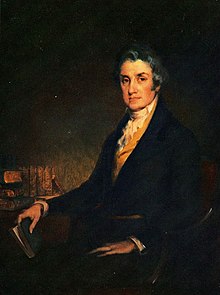Abraham Baldwin | |
|---|---|
 | |
| President pro tempore of the United States Senate | |
| In office December 8, 1801 – December 13, 1802 | |
| Preceded by | James Hillhouse |
| Succeeded by | Stephen R. Bradley |
| United States Senator from Georgia | |
| In office March 4, 1799 – March 4, 1807 | |
| Preceded by | Josiah Tattnall (politician) |
| Succeeded by | George Jones |
| Member of the U.S. House of Representatives from Georgia's at-large district | |
| In office March 4, 1793 – March 3, 1799 | |
| Preceded by | district created |
| Succeeded by | James Jones |
| Member of the U.S. House of Representatives from Georgia's 2nd district | |
| In office March 4, 1789 – March 3, 1793 | |
| Preceded by | district created |
| Succeeded by | Converted to at-large districts |
| President of the University of Georgia | |
| In office 1785–1801 | |
| Preceded by | None; post established |
| Succeeded by | Josiah Meigs |
| Delegate from Georgia to the Congress of the Confederation | |
| In office 1785 – 85, 1787–88 | |
| Personal details | |
| Born | November 22, 1754 Guilford, Connecticut Colony, British America |
| Died | March 4, 1807 (aged 52) Washington, D.C., U.S. |
| Resting place | Rock Creek Cemetery Washington, D.C., U.S. |
| Alma mater | Yale College |
Abraham Baldwin (November 22, 1754 – March 4, 1807) was an American minister, patriot, politician, and Founding Father who signed the United States Constitution. Born and raised in Connecticut, he was a 1772 graduate of Yale College. After the Revolutionary War, Baldwin became a lawyer. He moved to the U.S. state of Georgia in the mid-1780s and founded the University of Georgia. Baldwin was a member of Society of the Cincinnati.[1][2][3]
Baldwin served as a United States Senator from Georgia from 1799 to 1807. During his tenure, he served as President pro tempore of the United States Senate from 1801 to 1802.
- ^ Metcalf, Bryce. Original Members and Other Officers Eligible to the Society of the Cincinnati, 1783–1938: With the Institution, Rules of Admission, and Lists of the Officers of the General and State Societies (Strasburg, Va.: Shenandoah Publishing House, Inc., 1938), p. 41.
- ^ "Officers Represented in the Society of the Cincinnati". Archived from the original on April 13, 2021.
- ^ Aimone, Alan Conrad (2005). "New York State Society of the Cincinnati: Biographies of Original Members and Other Continental Officers (review)". The Journal of Military History. 69 (1): 231–232. doi:10.1353/jmh.2005.0002. ISSN 1543-7795. S2CID 162248285.